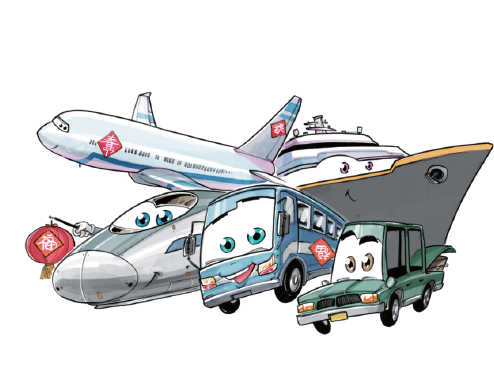Diversified choices point to changing holiday customs
- By Cui Shoufeng
 0 Comment(s)
0 Comment(s) Print
Print E-mail China Daily, February 8, 2017
E-mail China Daily, February 8, 2017
|
|
|
CAI MENG/CHINA DAILY |
Long accepted as a time of family reunions and arduous journeys back home, Spring Festival now is open to other choices. During the weeklong holiday that ended on Thursday, Chinese tourists made 6.15 million trips to overseas destinations-an increase of 7 percent year-on-year. Within the country, they made more than 344 million trips, up 13.8 percent year-on-year.
While many still strive to travel back home during the Spring Festival holiday, more and more Chinese have developed an appetite for exotic cultures and outbound trips.
Some travel south to warm beaches or north to ski resorts, while others choose to invite their parents to where they work and show them around. Both choices are rapidly gaining popularity, bringing yet more changes to Spring Festival traditions.
This year several provinces saw record number of tourist footfalls on Lunar New Year's Day, when most people used to visit relatives and exchange greetings instead of traveling.
The number of Spring Festival trips made by Chinese, be they within or outside the country, by train or by air, keeps breaking records. It reached 314 million in the first six days of the holiday. The high-speed rail network, which has greatly shortened travel time while offering more considerate on-board services, deserves much of the credit for this. Easier, fairer access to purchasing tickets is another boon for passengers, as more than 73 percent of all the train tickets sold were bought online.
The internet-driven sharing economy offers not just annual online shopping galas but also more viable travel solutions. Ride sharing, for one, has become a common choice for people traveling to the same destinations during the Spring Festival travel rush because of lower costs.
China's largest car-hailing platform Didi Chuxing has said its Shunfengche, or "hitchhiking" project, which includes about 2.8 million car owners, completed some 4.2 million road trips during the travel peak.
So is celebrating Spring Festival away from home discarding traditional culture? Not necessarily. The way Chinese spend their Spring Festival vacation and how they travel actually mirrors the progress they have made in diversifying holiday choices.
That some are breaking the tradition of staying home and embarking on high-end overseas trips also point to their growing financial capabilities and readiness to change holiday customs.
And the popular overseas destinations, including those in Europe and Southeast Asia, have warmly welcomed this progress, as cities such as London, Sydney and Bangkok organize Spring Festival-themed events and parades, in the hope of attracting more Chinese tourists.
Increasing personal wealth and more convenient transportation are changing Spring Festival traditions. There is no reason why one should not embrace these changes if they fit better in the modern world.
The author is a writer with China Daily.






